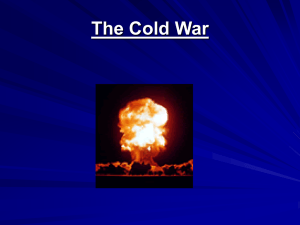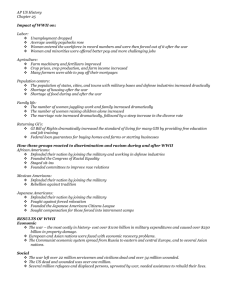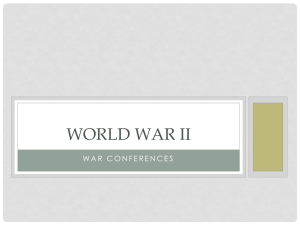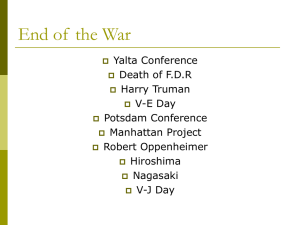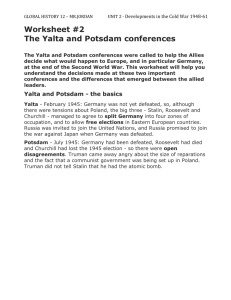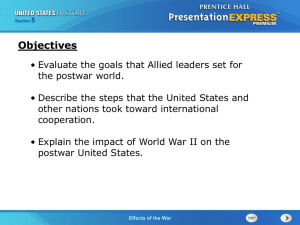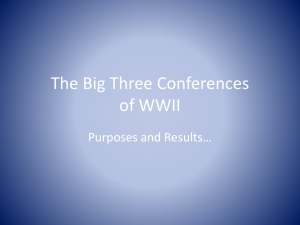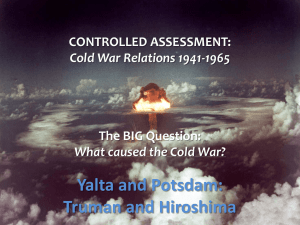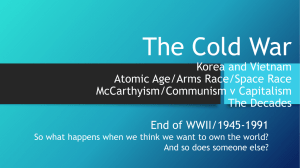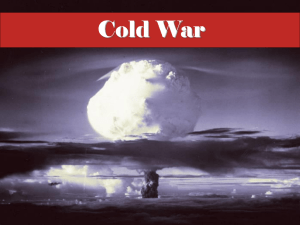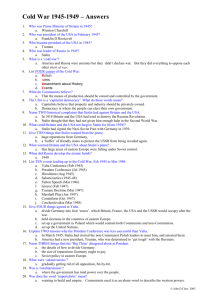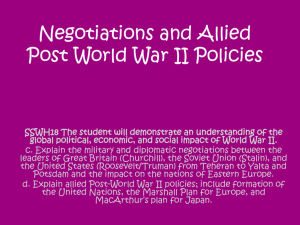Potsdam (July 1945)
advertisement
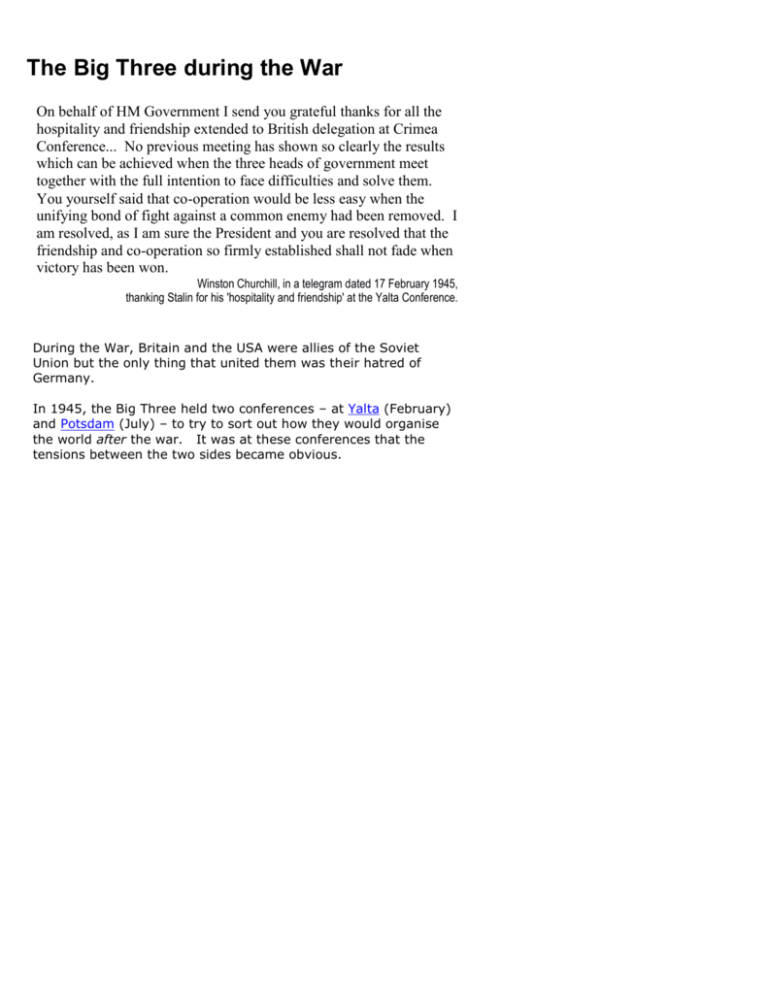
The Big Three during the War On behalf of HM Government I send you grateful thanks for all the hospitality and friendship extended to British delegation at Crimea Conference... No previous meeting has shown so clearly the results which can be achieved when the three heads of government meet together with the full intention to face difficulties and solve them. You yourself said that co-operation would be less easy when the unifying bond of fight against a common enemy had been removed. I am resolved, as I am sure the President and you are resolved that the friendship and co-operation so firmly established shall not fade when victory has been won. Winston Churchill, in a telegram dated 17 February 1945, thanking Stalin for his 'hospitality and friendship' at the Yalta Conference. During the War, Britain and the USA were allies of the Soviet Union but the only thing that united them was their hatred of Germany. In 1945, the Big Three held two conferences – at Yalta (February) and Potsdam (July) – to try to sort out how they would organise the world after the war. It was at these conferences that the tensions between the two sides became obvious. Yalta (Feb 1945) Held during the war, on the surface, the Yalta conference seemed successful. The Allies agreed a Protocol of Proceedings to: divide Germany into four ‘zones’, which Britain, France, the USA and the USSR would occupy after the war. bring Nazi war-criminals to trial. set up a Polish Provisional Government of National Unity 'pledged to the holding of free and unfettered elections as soon as possible'. help the freed peoples of Europe set up democratic and selfgoverning countries by helping them to (a) maintain law and order; (b) carry out emergency relief measures; (c) set up governments; and (d) hold elections (this was called the 'Declaration of Liberated Europe'). set up a commission to look into reparations. At Yalta, the negotiations went very much in Stalin's favour, but this was because Roosevelt wanted Russian help in the Pacific, and was prepared to agree to almost anything as long as Stalin agreed to go to war with Japan. Therefore, Stalin promised that: Russia would join the war in the Pacific, in return for occupation zones in North Korea and Manchuria. Russia also agreed to join the United Nations. Although the Conference appeared successful, however, behind the scenes, tension was growing, particularly about reparations, and about Poland. After the conference, Churchill wrote to Roosevelt that ‘The Soviet Union has become a danger to the free world.’ And on their return home both he and Roosevelt were criticised for giving away too much to the Soviets: Potsdam (July 1945) . At Potsdam, the Allies met after the surrender of Germany (in May 1945) to finalise the principls of the post-war peace – Potsdam was the Versailles of World War II. Three factors meant that the Potsdam Conference was not successful: 1. Relations between the superpowers had worsened considerably since Yalta. In March 1945, Stalin had invited the non-Communist Polish leaders to meet him, and arrested them. Things had got so bad that, in May 1945, the British Joint Planing Group had drawn up plans for 'Operation Unthinkable' - a 'total war ... to impose our will upon Russia'. 2. Meanwhile, Rooevelt had died, and America had a new president, Truman, who was inclined to ‘get tough’ with the Russians. 3. Also, soon after he had arrived at the Conference, Truman learned (on 21 July) that America had tested the first atomic bomb. It gave the Americans a huge military advantage over everyone else. It also meant that Truman didn't need Stalin's help in Japan. Instead, Truman's main aim at the conference was to find out from Stalin what date the Russians intended to enter the war in the Pacific – 4. something which (unlike Roosevelt) he did NOT want. So, at Potsdam, the arguments came out into the open. The Conference agreed the following Protocols: to set up the four ‘zones of occupation’ in Germany. The Nazi Party, government and laws were to be destroyed, and 'German education shall be so controlled as completely to eliminate Nazi and militarist doctrines and to make possible the successful development of democratic ideas. to bring Nazi war-criminals to trial. to recognize the Polish Provisional Government of National Unity and hold 'free and unfettered elections as soon as possible'. Russia was allowed to take reparations from the Soviet Zone, and also 10% of the industrial equipment of the western zones as reparations. America and Britain could take reparations from their zones if they wished. President Truman presented it as a 'compromise', but in fact the Allies had disagreed openly about: 1. 2. 3. the details of how to divide Germany. the size of reparations Germany ought to pay. Russian influence over the countries of eastern Europe. A map of how Germany was divided into zones Did you know In 1945, an election in Britain returned a Labour government, so Churchill was replaced by the Labour leader and new Prime Minister Clement Atlee - a man whom Churchill described as: 'a modest man, with a lot to be modest about'.
